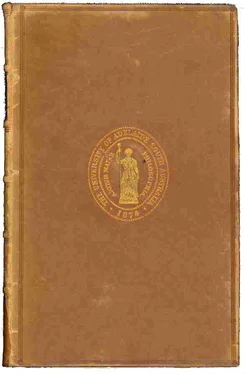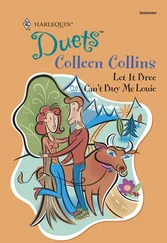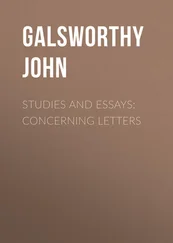Galsworthy, 1867-1933 - To Let
Здесь есть возможность читать онлайн «Galsworthy, 1867-1933 - To Let» весь текст электронной книги совершенно бесплатно (целиком полную версию без сокращений). В некоторых случаях можно слушать аудио, скачать через торрент в формате fb2 и присутствует краткое содержание. Жанр: Старинная литература, на английском языке. Описание произведения, (предисловие) а так же отзывы посетителей доступны на портале библиотеки ЛибКат.
- Название:To Let
- Автор:
- Жанр:
- Год:неизвестен
- ISBN:нет данных
- Рейтинг книги:5 / 5. Голосов: 1
-
Избранное:Добавить в избранное
- Отзывы:
-
Ваша оценка:
- 100
- 1
- 2
- 3
- 4
- 5
To Let: краткое содержание, описание и аннотация
Предлагаем к чтению аннотацию, описание, краткое содержание или предисловие (зависит от того, что написал сам автор книги «To Let»). Если вы не нашли необходимую информацию о книге — напишите в комментариях, мы постараемся отыскать её.
To Let — читать онлайн бесплатно полную книгу (весь текст) целиком
Ниже представлен текст книги, разбитый по страницам. Система сохранения места последней прочитанной страницы, позволяет с удобством читать онлайн бесплатно книгу «To Let», без необходимости каждый раз заново искать на чём Вы остановились. Поставьте закладку, и сможете в любой момент перейти на страницу, на которой закончили чтение.
Интервал:
Закладка:
‘I must go out,’ he thought. He hastened down to the drawing-room, lighted just as he had left it, with the piano thrumming out that waltz, or fox-trot, or whatever they called it in these days, and passed through on to the verandah. Where could he watch, without her seeing him? And he stole down through the fruit garden to the boat-house. He was between her and the river now, and his heart felt lighter. She was his daughter, and Annette’s — she wouldn’t do anything foolish; but there it was — he didn’t know! From the boat-house window he could see the last acacia and the spin of her skirt when she turned in her restless march. That tune had run down at last — thank goodness! He crossed the floor and looked through the farther window at the water slow-flowing past the lilies. It made little bubbles against them, bright where a moon-streak fell. He remembered suddenly that early morning when he had slept in this boat-house after his father died, and she had just been born — nearly nineteen years ago! Even now he recalled the unaccustomed world when he woke up, the strange feeling it had given him. That day the second passion of his life began — for this girl of his, roaming under the acacias. What a comfort she had been to him! And all the soreness and sense of outrage left him. If he could make her happy again, he didn’t care! An owl flew, queeking, queeking; a bat flitted by; the moonlight brightened and broadened on the water. How long was she going to roam about like this! He went back to the window, and suddenly saw her coming down to the bank. She stood quite close, on the landing-stage. And Soames watched, clenching his hands. Should he speak to her? His excitement was intense. The stillness of her figure, its youth, its absorption in despair, in longing, in-itself. He would always remember it, moonlit like that; and the faint sweet reek of the river and the shivering of the willow leaves. She had everything in the world that he could give her, except the one thing that she could not have because of him! The perversity of things hurt him at that moment, as might a fish-bone in his throat. Then, with an infinite relief, he saw her turn back towards the house. What could he give her to make amends? Pearls, travel, horses, other young men — anything she wanted — that he might lose the memory of her young figure lonely by the water! There! She had set that tune going again! Why — it was a mania! Dark, thrumming, faint, travelling from the house. It was as though she had said: “If I can’t have something to keep me going, I shall die of this!” Soames dimly understood. Well, if it helped her, let her keep it thrumming on all night! And, mousing back through the fruit garden, he regained the verandah. Though he meant to go in and speak to her now, he still hesitated, not knowing what to say, trying hard to recall how it felt to be thwarted in love. He ought to know, ought to remember — and he could not! Gone — all real recollection; except that it had hurt him horribly. In this blankness he stood passing his handkerchief over hands and lips, which were very dry. By craning his head he could just see Fleur, standing with her back to that piano still grinding out its tune, her arms tight crossed on her breast, a lighted cigarette between her lips, whose smoke half veiled her face. The expression on it was strange to Soames, the eyes shone and stared, and every feature was alive with a sort of wretched scorn and anger. Once or twice he had seen Annette look like that — the face was too vivid, too naked, not HIS daughter’s at that moment. And he dared not go in, realising the futility of any attempt at consolation. He sat down in the shadow of the ingle-nook. Monstrous trick, that Fate had played him! Nemesis! That old unhappy marriage! And in God’s name — why? How was he to know, when he wanted Irene so violently, and she consented to be his, that she would never love him? The tune died and was renewed, and died again, and still Soames sat in the shadow, waiting for he knew not what. The fag of Fleur’s cigarette, flung through the window, fell on the grass; he watched it glowing, burning itself out. The moon had freed herself above the poplars, and poured her unreality on the garden. Comfortless light, mysterious, withdrawn — like the beauty of that woman who had never loved him — dappling the nemesias and the stocks with a vesture not of earth. Flowers! And his flower so unhappy! Ah, why could one not put happiness into Local Loans, gild its edges, insure it against going down? Light had ceased to flow out now from the drawing-room window. All was silent and dark in there. Had she gone up? He rose, and, tiptoeing, peered in. It seemed so! He entered. The verandah kept the moonlight out; and at first he could see nothing but the outlines of furniture blacker than the darkness. He groped towards the farther window to shut it. His foot struck a chair, and he heard a gasp. There she was, curled and crushed into the corner of the sofa! His hand hovered. Did she want his consolation? He stood, gazing at that ball of crushed frills and hair and graceful youth, trying to burrow its way out of sorrow. How leave her there? At last he touched her hair, and said: “Come, darling, better go to bed. I’ll make it up to you, somehow.” How fatuous! But what could he have said?
Last updated on Wed Jan 12 09:33:24 2011 for eBooks@Adelaide.
To Let, by John Galsworthy
IX Under the Oak-Tree
When their visitor had disappeared Jon and his mother stood without speaking, till he said suddenly: “I ought to have seen him out.” But Soames was already walking down the drive, and Jon went up-stairs to his father’s studio, not trusting himself to go back. The expression on his mother’s face confronting the man she had once been married to, had sealed a resolution growing within him ever since she left him the night before. It had put the finishing touch of reality. To marry Fleur would be to hit his mother in the face; to betray his dead father! It was no good! Jon had the least resentful of natures. He bore his parents no grudge in this hour of his distress. For one so young there was a rather strange power in him of seeing things in some sort of proportion. It was worse for Fleur, worse for his mother even, than it was for him. Harder than to give up was to be given up, or to be the cause of some one you loved giving up for you. He must not, would not behave grudgingly! While he stood watching the tardy sunlight, he had again that sudden vision of the world which had come to him the night before. Sea on sea, country on country, millions on millions of people, all with their own lives, energies, joys, griefs, and suffering — all with things they had to give up, and separate struggles for existence. Even though he might be willing to give up all else for the one thing he couldn’t have, he would be a fool to think his feelings mattered much in so vast a world, and to behave like a cry-baby or a cad. He pictured the people who had nothing — the millions who had given up life in the war, the millions whom the war had left with life and little else; the hungry children he had read of, the shattered men; people in prison, every kind of unfortunate. And — they did not help him much. If one had to miss a meal, what comfort in the knowledge that many others had to miss it too? There was more distraction in the thought of getting away out into this vast world of which he knew nothing yet. He could not go on staying here, walled in and sheltered, with everything so slick and comfortable, and nothing to do but brood and think what might have been. He could not go back to Wansdon, and the memories of Fleur. If he saw her again he could not trust himself; and if he stayed here or went back there, he would surely see her. While they were within reach of each other that must happen. To go far away and quickly, was the only thing to do. But, however much he loved his mother, he did not want to go away with her. Then feeling that was brutal, he made up his mind desperately to propose that they should go to Italy. For two hours in that melancholy room he tried to master himself; then dressed solemnly for dinner.
Читать дальшеИнтервал:
Закладка:
Похожие книги на «To Let»
Представляем Вашему вниманию похожие книги на «To Let» списком для выбора. Мы отобрали схожую по названию и смыслу литературу в надежде предоставить читателям больше вариантов отыскать новые, интересные, ещё непрочитанные произведения.
Обсуждение, отзывы о книге «To Let» и просто собственные мнения читателей. Оставьте ваши комментарии, напишите, что Вы думаете о произведении, его смысле или главных героях. Укажите что конкретно понравилось, а что нет, и почему Вы так считаете.












